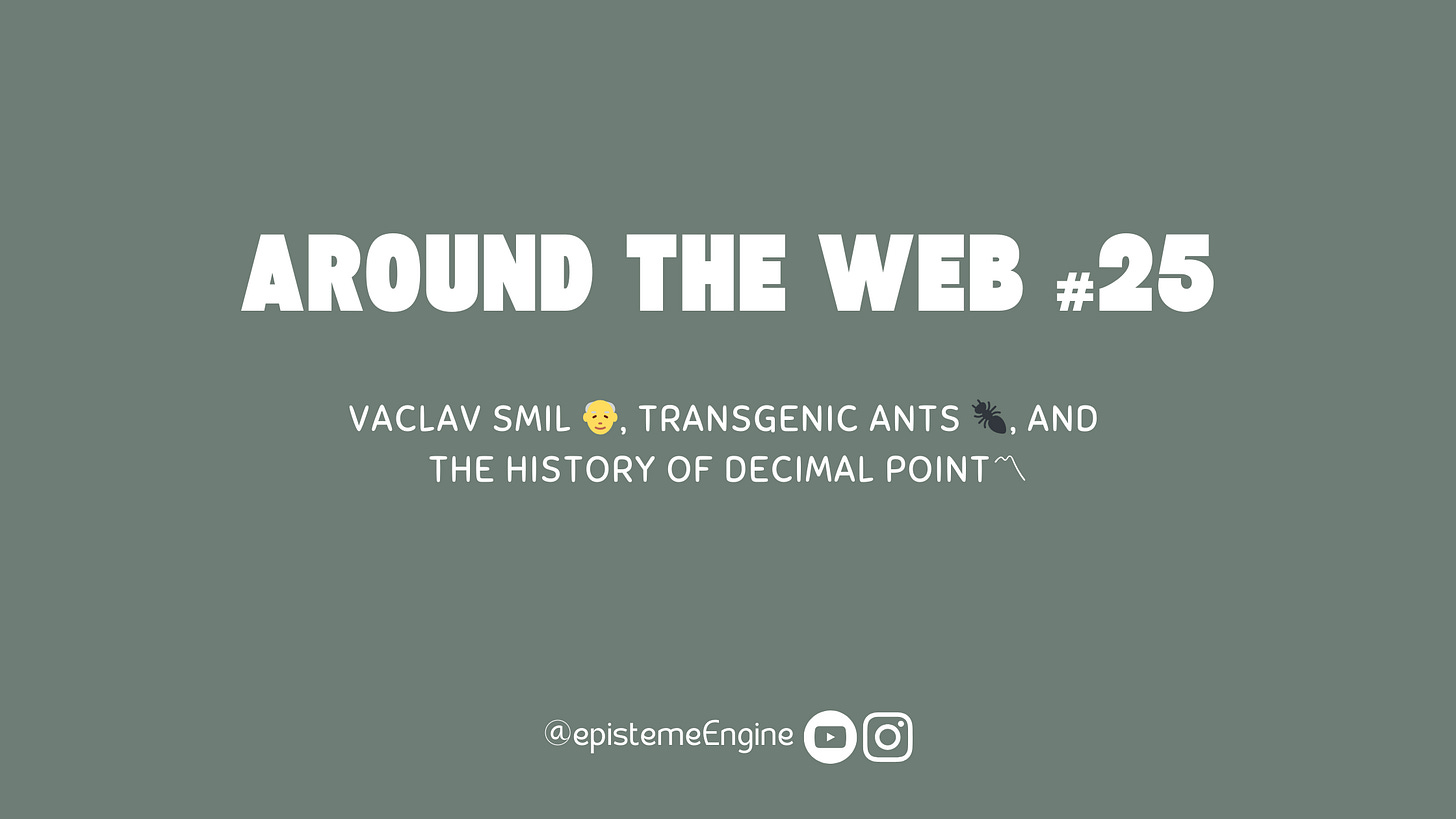Check out my latest AI newsletter.
Watch my latest video essay: From Elephants to Metropolises.
[🗣️Talking points for your next outing📍]
⚕Rare genetic mutation allows woman to feel no pain.
💰 China’s wildly effective extreme poverty reduction.
⛽World’s first ethanol to sustainable aviation fuel production facility.
🫘Food's Protein Density vs. Cost per Gram of Protein
🪴The first glow-in-the-dark house plant.
⚡The AI Boom could use a shocking amount of electricity.
[Long Read 📰 / Video 🎥]
[I]: Vaclav Smil: Tackling Climate Change.
I am an occasional reader of the Gates Notes. And ever since I can remember, Bill Gates can’t stop talking about one Vaclav Smil. I recently started consuming Prof Smil’s work, and I have to admit, I like his work.
Now, because the nature of his work includes discussing such topics as energy and global warming (See Vaclav Smil on Climate Change), he is not spared the fights that are not uncommon in this arena (and perhaps good for him he does not use social media, and rarely grant interview).
I should also add that, from the little of his work I have read, he is deep, very deep into the facts of the matter (something that is rare these days particularly amongst peoples with the loudest voice). And while he claims not to predict the future, it is the implicit prediction in his work that pisses off folks he has termed “grossly misinformed greenness.”
I recommend this New Yorker’s Person of Interest essay on Vaclav Smil.
[II]: Making the First Transgenic Ants.
I enjoyed reading this essay, partly because I spent most of my time in grad school conducting biology experiments. This is the kind of research that serves as foundations for bigger breakthrough. Anyone also wondering what getting a PhD in Biology entails, this essay should be a good read.
[III]: Economist Roland Fryer on Adversity, Race, and Refusing to Conform.
I enjoyed listening to Roland Fyer in this interview.
“University of Austin co-founder Bari Weiss sits down with Harvard economist Dr. Roland Fryer to discuss what it means to pursue the truth.”
[IV]: The Decimal Point is 150 years older than Historians Thought
“The decimal point was invented around 150 years earlier than previously thought, according to an analysis of astronomical tables compiled by the Italian merchant and mathematician Giovanni Bianchini in the 1440s.
Historians say that this discovery rewrites the origins of one of the most fundamental mathematical conventions, and suggests that Bianchini — whose economic training contrasted starkly with those of his astronomer peers — might have played a more notable part in the history of maths than previously realized…”
[V]: NIH-Sponsored Post-Docs, and the Foolishness of Artificially Subsidizing Demand
This is an excellent commentary on the state of biomedical academia in the United States, as a (Third Year) postdoc myself, I find myself agreeing to many of the things stated. Amongst friends, I have often argued that the current PhD / Academia system isn’t just compatible with the realities of today’s United States, and we are all just stuck in this status quo bias valley.
[VI]: Universities are failing to boost economic growth.
“Universities have boomed in recent decades. Higher-education institutions across the world now employ in the order of 15m researchers, up from 4m in 1980. These workers produce five times the number of papers each year. Governments have ramped up spending on the sector. The justification for this rapid expansion has, in part, followed sound economic principles. Universities are supposed to produce intellectual and scientific breakthroughs that can be employed by businesses, the government and regular folk. Such ideas are placed in the public domain, available to all. In theory, therefore, universities should be an excellent source of productivity growth.
In practice, however, the great expansion of higher education has coincided with a productivity slowdown.”
Link to essay, based on the paper: The effect of public science on corporate R&D.



